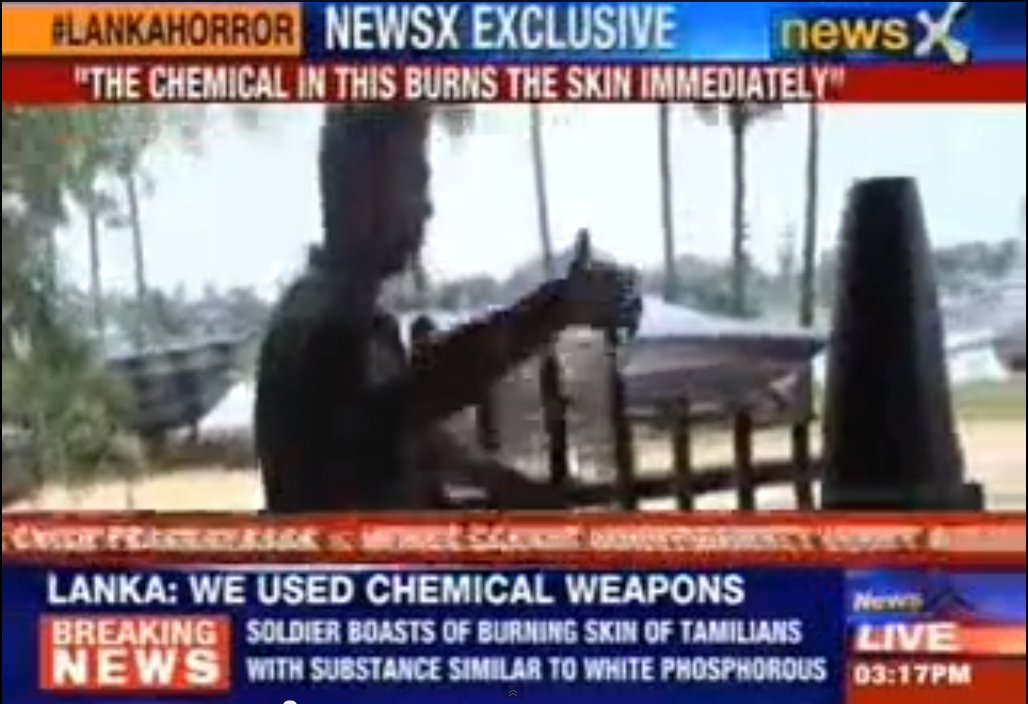
Sri Lanka reaffirmed its dedication to the Chemical Weapons Convention (CWC) at the 29th session of the Conference of State Parties (CSP-29) in The Hague last week, despite allegations of having used chemical weapons against Tamils during the 2009 Mullivaikkal genocide.
Sri Lanka’s Ambassador to the Netherlands, Rekha Gunasekera, emphasised the nation's "long-standing commitment" to the CWC, which it ratified in 1994. Gunasekera underscored Sri Lanka's opposition to any use of chemical weapons and outlined steps taken at the national level to ensure compliance with the convention. The ambassador also highlighted Sri Lanka’s efforts to prevent chemical weapons from falling into the hands of terrorists and its readiness to address emerging technological challenges in chemistry.
The CWC prohibits the development, production, and use of chemical weapons and is overseen by the Organization for the Prohibition of Chemical Weapons (OPCW), headquartered in The Hague. Sri Lanka established its National Authority under the Ministry of Defence to implement the convention.
Despite these assurances, allegations of chemical weapon use by the Sri Lankan military during the final stages of the armed conflict persist. A 2014 broadcast by Indian news channel News X featured a Sri Lankan soldier reportedly admitting to deploying chemical weapons against Tamil civilians and Liberation Tigers of Tamil Eelam (LTTE) fighters in Mullivaikkal, where thousands of Tamils were trapped in a 3km zone during the armed conflict's conclusion in 2009.
In footage from the documentary This Land Belongs to the Army by Indian journalist Thamizh Prabhakar, the soldier describes the weapon as one that "burns the skin immediately" upon impact. Another weapon, reportedly dropped from planes, is said to destroy areas of up to one square kilometre. The documentary included images of Tamil civilians with severe chemical burns, raising concerns about potential violations of international law.
The Sri Lankan military has dismissed these allegations. Brigadier Ruwan Wanigasooriya rejected the claims, stating, "Sri Lanka did not manufacture weapons or munitions, and we procured our inventories from known suppliers through government-to-government interventions." He further alleged that the LTTE was responsible for chemical stockpiles and labelled the documentary’s claims as an attempt to "sensationalize baseless allegations."
Filmmaker Maga Tamizh Prabhagaran criticized the military’s denials, pointing to a long history of the Sri Lankan government rejecting evidence of mass atrocities. "The government has always lied that it only used legal weapons," he said, referencing accounts of targeted chemical weapon use in areas densely populated with Tamil civilians.
During the final stages of the war, the Sri Lankan military has been accused of heavy shelling, including the use of cluster munitions and white phosphorus. These allegations have contributed to accusations of genocide and war crimes against the Tamil population. Prageeth Eknaligoda, a Sinhala journalist, was forcibly disappeared while investigating alleged chemical weapon use by the military.
